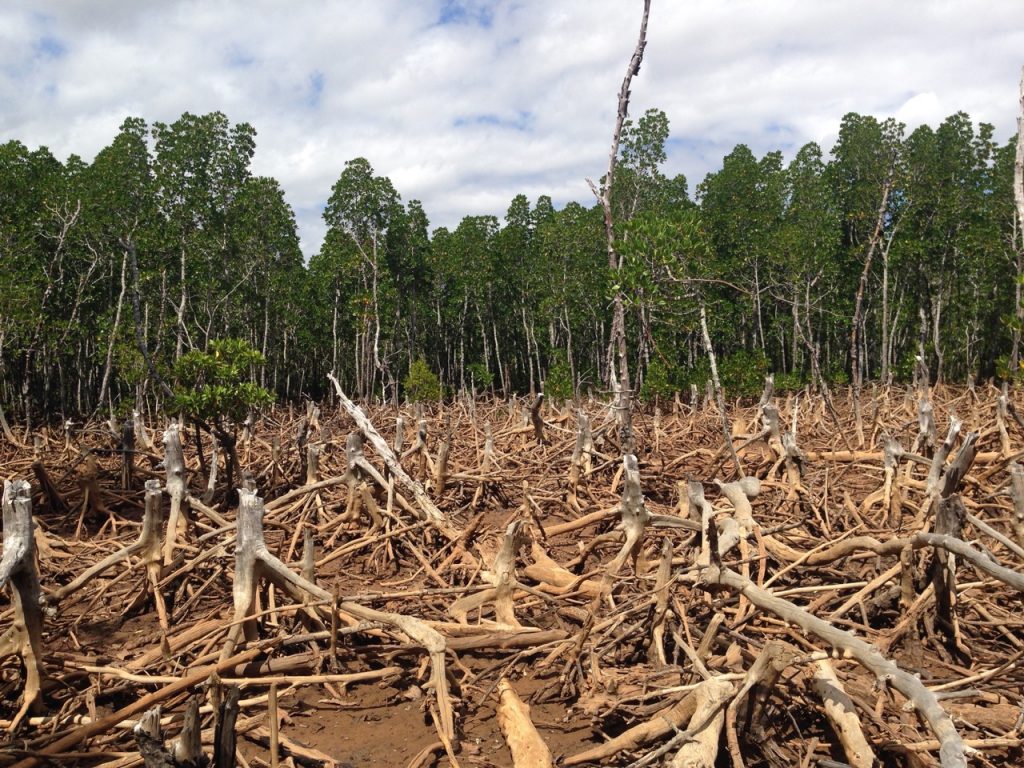Senators Push Financial Firms to Help Stop Global Deforestation
Sen. Brian Schatz, co-chair of the Senate Climate Action Task Force and a member of the Senate Banking Committee, led a group of eight senators in calling on investment firms to help mitigate climate change by using their investment portfolios to stop tropical deforestation.
“We are concerned that some companies in your portfolio may not be living up to their commitments to address deforestation in their supply chain—if they have made such commitments at all,” the senators wrote. “It is our view that addressing risks from deforestation is in line with your fiduciary responsibility. As such, we are interested in learning what due diligence and risk management procedures your firm has put in place to address and mitigate these risks for both active investments and passively managed funds.”
In letters to investment firms that provide global financing for the some of the fastest growing companies linked to deforestation, the senators question their environmental, social, and governance criteria and call for more transparency on policies related to deforestation activities. These firms include BlackRock, Vanguard, TIAA, JPMorgan Chase, Dimensional Fund Advisors, Prudential Financial, CalPERS, Fidelity, Northern Cross, Northern Trust and Kopernik Global Investors.
The senators also highlighted the environmental cost of palm oil production in their letters. Used in soap, cosmetics, and food, the demand for palm oil has grown exponentially since the 1960s. To meet demand, palm oil companies began to expand production by clearing forests around the world to make way for palm oil plantations. The industry has led to widespread deforestation throughout South America and Southeast Asia, displacing communities and wildlife, and adding hundreds of megatons of carbon into the atmosphere each year.
In addition to Schatz, the letters were signed by U.S. Senators Sheldon Whitehouse (D-R.I.), Tom Udall (D-N.M.), Elizabeth Warren (D-Mass.), Ed Markey (D-Mass.), Jeff Merkley (D-Ore.), Richard Blumenthal (D-Conn.), and Bernie Sanders (I-Vt.).
The full text of the letter follows:
Dear Mr. Fink,
We write to inquire about your firm’s approach to managing environmental, social, and governance (ESG) risks related to investments exposed to tropical deforestation and associated human rights issues. In particular, we are concerned that some companies in your portfolio may not be living up to their commitments to address deforestation in their supply chain—if they have made such commitments at all.
According to publicly available data, CalPERS is among the top U.S. asset managers exposed to companies active in the palm oil sector – an industry sector widely known to be a leading cause of tropical deforestation and biodiversity loss, as well as associated climate impacts. Roughly 12 percent of total greenhouse gas emissions globally are caused by deforestation, and some 80 percent of global deforestation is driven by agriculture. The majority of this deforestation, including the conversion of Southeast Asia’s carbon-rich peat lands, is caused by industrial-scale commodity crops, with palm oil being the primary driver. In Indonesia alone, the palm oil sector generates an estimated 250 million tons of carbon dioxide per year – roughly equivalent to the annual emissions of Spain.
Across the tropics, in regions as varied as West Africa, Central America and Southeast Asia, the palm oil sector is also widely linked to human rights violations and social conflict, both of which are associated with significant material costs. And, as noted by INTERPOL, UNEP and others, the palm oil sector is associated with forest crimes such as illegal logging. These social and governance issues and the related sustainability concerns have made some financial sector entities increasingly recognize the palm oil sector as a high-risk sector that bears enhanced due diligence in order to manage and mitigate risks.
Increasingly, direct environmental factors and human rights considerations – both magnified by climate change – drive business risks and opportunities. Consequently, financiers and investors are increasingly recognizing the materiality of risks associated with exposure to climate change, environmental destruction, and human rights violations. It is our view that addressing risks from deforestation is in line with your fiduciary responsibility. As such, we are interested in learning what due diligence and risk management procedures your firm has put in place to address and mitigate these risks for both active investments and passively managed funds.
We respectfully request that you respond to the following questions by March 1, 2019:
What is your policy for conducting due diligence on the environmental, social, and governance activities for the firms in which CalPERS invests?
Do you have a policy specifically related to companies’ deforestation-related activities? If so, please provide details, and if not, what are your plans for instituting such a policy in the future?
Have you ever excluded a company from your portfolio due exclusively to environmental, social, or governance risks? If so, please explain the factors that led to this decision, and if not, please elaborate on what ESG activities would pose an unacceptable risk for CalPERS.
Assuming that CalPERS may hold many of these companies through passive index funds, do you make provisions to apply ESG due diligence to holdings through such funds?















